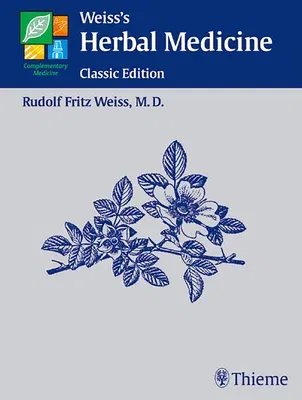The "bible" of medical herbalism--now back in its classic edition!
The classic edition is back! First published in 1988, Weiss's Herbal
Medicine is revered by herbalists and medical professionals alike as
the seminal work in the field of phytotherapy. This book has established
itself as an indispensable resource and is widely acknowledged as the
key text in the field of medical herbalism.
You will find clear, detailed information on treating conditions ranging
from colds and influenza to rheumatic problems, metabolic and endocrine
disorders, cancer, and much more. Conveniently arranged by organ system,
the text provides guidelines for prescribing herbal remedies, with
sections on dosage, application, and precautionary measures.
Plus, for each plant discussed, you will find lists of their occurrence,
botanical features, differentiation from related species, constituents,
and medical benefits. Proprietary formulations, full references, and a
comprehensive subject index of almost 2,000 entries round out the superb
coverage!
Weiss's life's work examines the subject of herbal medicine from both a
clinical and practical viewpoint, incorporating his personal
observations and clinical experience with scientific studies. This
material formed the basis of Herbal Medicine 2E, also by Thieme. The
second edition, revised, expanded and modernized by Volker Fintelmann,
streamlines the work into a more clinical text, incorporating the latest
scientific research and Commission E findings on the efficacy of herbs.
This edition is recommended for allopathic physicians and other medical
professionals who are new to the field of herbal medicine.
Professor Rudolf Fritz Weiss (1895-1991) is highly regarded as the
"founding father" of modern German phytotherapy. He studied botany and
medicine at the University of Berlin, qualifying as a doctor in 1922 and
subsequently taking additional qualifications in internal medicine. A
teaching post in herbal medicine was interrupted by war service as an
army doctor, followed by seven years in Russian captivity as a doctor in
prisoner-of-war camp hospitals. After retiring from clinical practice in
1961, he devoted his life to the scientific development and acceptance
of herbal medicine. Weiss was appointed as a member of the German
Commission E in 1978. He was founder and editor of the Zeitschrift fuer
Phytotherapie, and lectured on current advances in the subject at the
University of Tuebingen.

